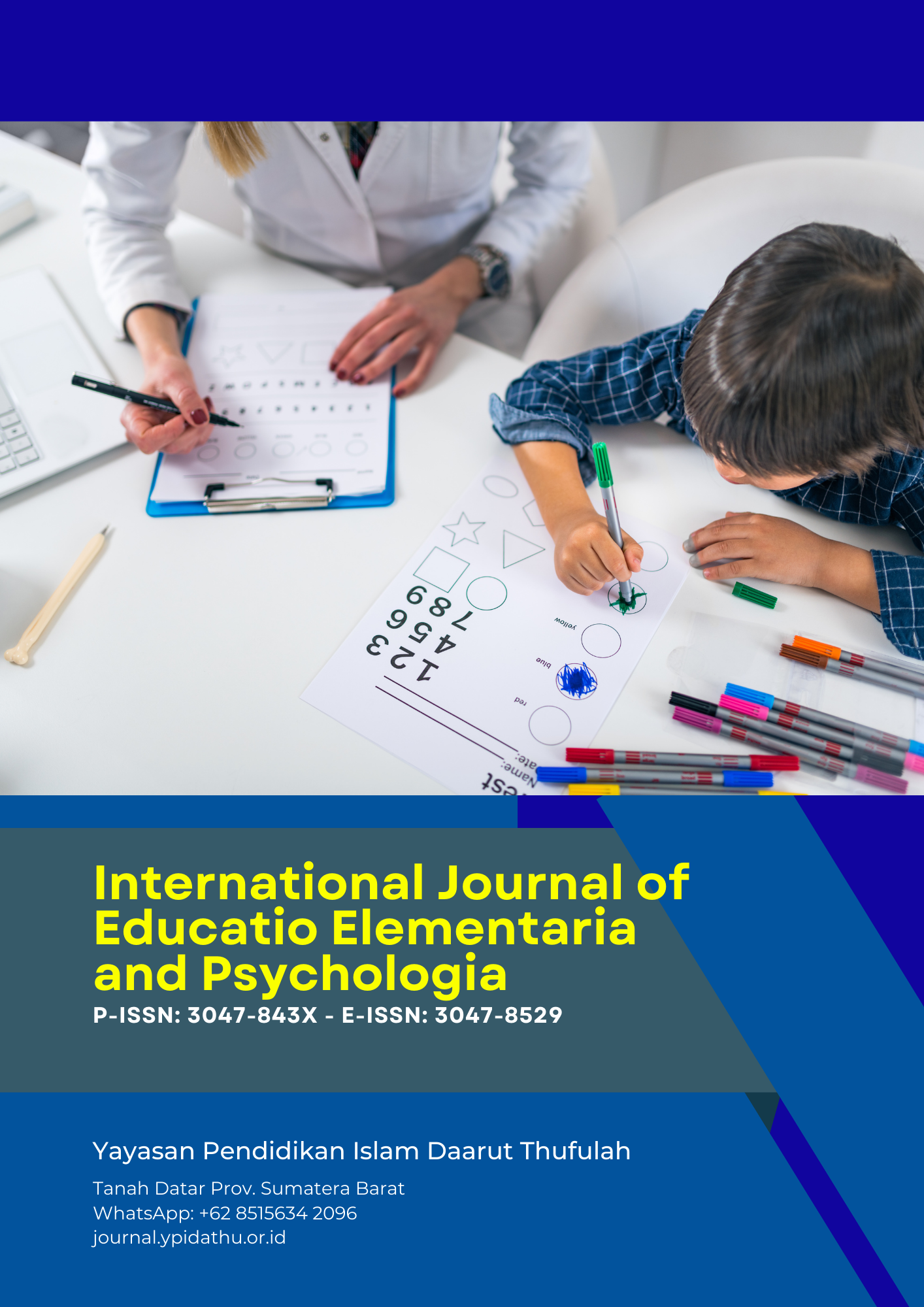Development of Augmented Reality Media to Grow Numerical Literacy of Elementary School Students
Abstract
The use of augmented reality (AR) in education has shown potential to improve primary school students' numeracy skills. However, AR research for elementary school geometry is still rare. This study aims to develop augmented reality (AR)-based interactive learning media using the assembler edu platform to improve students' numeracy literacy in geometry subjects. The development method uses ADDIE, the research stages include needs analysis, design, development, implementation, and evaluation. The needs analysis identified problems such as the lack of interactive learning materials and students' difficulties in understanding geometry material. At the design stage, the storyboard and flowchart are made using assembler applications. Media development is done by combining components such as materials, geometry images, animations, and music. Implementation is done through trials by material experts, media experts, and field practitioners, as well as small group and large group trials. The evaluation results show that the developed media has high validity with a percentage of 92% from material experts and 88% from media experts, as well as a significant increase in student numeracy literacy with the percentage of completeness increasing from 6.15% (pre-test) to 79.8% (post-test). With an N-Gain Score of 0.52, this media is proven effective and feasible to use as an additional learning resource.. Recommendations for future research include developing content for other topics, testing in different conditions, and improving interactive features.
Full text article
References
Almira Eka Damayanti, d. (2018). Kelayakan Media Pembelajaran Fisika Berupa Buku Saku Berbasis Android pada Materi Fluda Statis. Indonesian Journal of Science and Mathematics Education Vol. 1 No. 1, 66.
Fitri Hidayat and Muhammad Nizar, “Model ADDIE (Analysis, Desigh, Development, Implementation and Evaluation) Dalam Pembelajaran Pendidikan Agama Islam” Vol. 1 No 1 (Desember 2021): 36.
Haekyung, Chung., Jang-Hyok, Ko. (2023). Augmented Reality-based Educational Content Application Development. Journal of mobile multimedia, doi: 10.13052/jmm1550-4646.1945
Lee, W. W., & Owens, D. L. (20004). Multimedia Based Instructional Design: Compute Based Training, Web Based Training, Distance Broadcast, Second Edition. San Fransisco: Pfeiffer.
Majdi, M. K., Subali, B., & Sugianto. (2018). Peningkatan Komunikasi Ilmiah Siswa SMA melalui Model Quantum Learning One Day One Qustion berbasis Daily Life Science Question. Unnes Physics Educational Journal Vol. 7 No. 1, 84.
Muhammad, Akhyar., Agus, Efendi. (2023). Augmented Reality Development Opportunities in Geometry Learning for Elementary Students. Jurnal Pendidikan dan Pengajaran, doi: 10.23887/jpp.v56i1.51238
Muhammad, Awal, Nur., Raden, Wirawan. (2023). Media Pembelajaran Matematika Materi Pokok Bangun Datar Berbasis Augmented Reality. Justek, doi: 10.31764/justek.v6i1.12683
Jarle, Trondal. (2023). Numeracy. doi: 10.4324/9780429262739-21
Siti, Masyithoh. (2023). Analisis hubungan literasi numerasi dan hasil belajar siswa. Jurnal Pendidikan Dasar dan Keguruan, doi: 10.47435/jpdk.v8i1.1798
Sugiono. Metode Penelitian Pendidikan (Kuantitatif, Kualitatif, R&D, Dan Penelitian). 2019th ed. Bandung: Alfabeta, n.d.
Syahriani, Sirait., Ely, Syafitri., Khairun, Nisa. (2023). The Development of Animation-Based Learning on Students’ Numeracy Literacy Skills. Al-Ishlah, doi: 10.35445/alishlah.v15i2.2858
Authors
Copyright (c) 2024 Muhammad ilman Nafi’an

This work is licensed under a Creative Commons Attribution-ShareAlike 4.0 International License.





